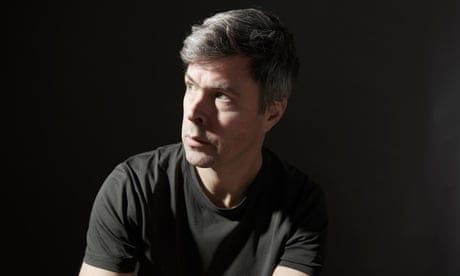
The Hungarian-English author on addressing what it’s like to be a male body in the world, learning the tricks of literature from Frederick Forsyth, and the feeling of nearly winning the Booker
David Szalay, 51, grew up in London and now lives in Vienna with his wife, having previously moved in 2009 to Hungary, his father’s birthplace. In 2016 he was shortlisted for the Booker prize with his fourth novel, All That Man Is, nine separate stories “self-assembled in the reader’s mind into a sort of collage-novel” (London Review of Books). His new novel, Flesh, follows the fluctuating fortunes of a young Hungarian ex-convict who makes his life in the UK after serving in Iraq.
Tell us how Flesh came to be.
I decided to abandon a book I’d started in 2017. It just wasn’t working, so it felt like a weight off my shoulders; nevertheless, I was under contract and had to come up with something. Literally nothing in Flesh is directly autobiographical, but it started with my underlying experience of being poised between two places and feeling not 100% at home in either of them. I no longer really feel like a native of London, but nor do I feel entirely Hungarian. Even for the decades I lived in London, just by virtue of the name that I have, there was always a sense of being... outsider is too strong a word; I was more of an outsider in Hungary, certainly, but a kind of insider-outsider, because I come from a Hungarian background but don’t speak Hungarian very well. That sort of grey zone interests me.
The novel implies that all the tumult of the protagonist’s life begins with the shock of puberty. What made you want to dramatise that idea?
My aim was to try to be as honest as possible about what it’s actually like to be a male body in the world – to be a body that has its own demands, and how you manage, accommodate, satisfy and fail to satisfy those demands, and what experiences that leads you into.
Money is pivotal to the story, as it tends to be in your work.
It structures our society in a deep way. I say that as someone who’s not Marxist or anything like that; anyone can see that money exists as a way of distributing power. The need for money, or wanting more money, or just sort of having to have money, is central in all our lives. Often it’s underplayed in the same way as physical experience – a bigger part of our existence than you’d think from reading fiction.
In form and style, Flesh resembles Turbulence [2018] and All That Man Is, which seemed to mark a break from your first three novels.
With my earlier books, I was doing something completely different after each one. Looking back, that was born out of not yet having found what really works for me. I enjoy books made of free-standing units of writing that are somehow in dialogue with one another, where what happens in the gaps is as important as the chapters themselves. The way that the reader has to do their own imaginative work means they might come away with a sense of having read a book that covers a large amount of human experience, without having to plough through a 1,000-page 19th-century novel. I don’t think anyone’s seriously going to deny that we live in an era of short attention spans, which probably isn’t good, but we’re going to have to work with it the best we can.
Flesh is published on 6 March by Jonathan Cape (£18.99). To support the Guardian and Observer order your copy at guardianbookshop.com. Delivery charges may apply
Continue reading...